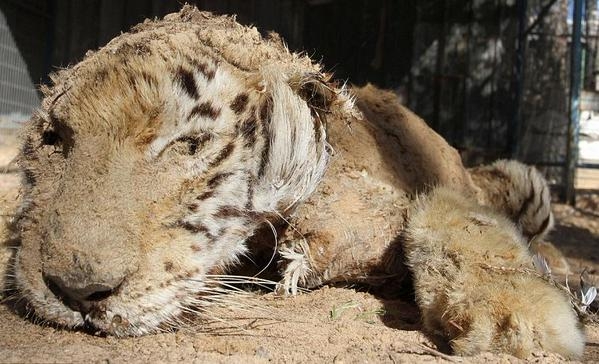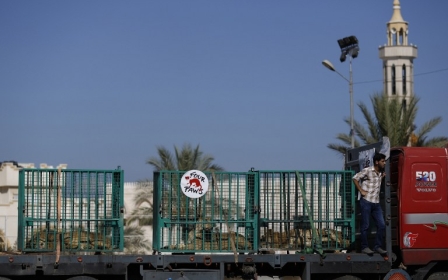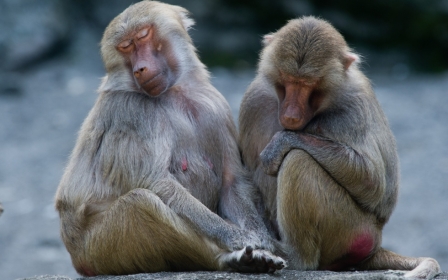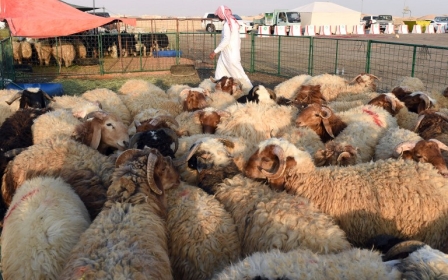Gaza visit zoo filled with stuffed animals as war takes heavy toll

A zoo owner in Gaza says dozens of exotic animals have died as a result of the ongoing conflict between Palestine and Israel, which last summer saw at least 2,100 Palestinians killed during a military bombardment of the coastal enclave.
Mohammed Awidi, who runs the zoo in the small town of Khan Younis, says staff were unable to get to work during the bombing to feed the animals, which included lions, birds from India and monkeys from Sudan.
As a result, his original inventory of 65 animals, most of which were smuggled in at great cost through underground tunnels with Egypt, has been decimated.
Last year’s casualties came after an earlier conflict, the 2008-2009 war, led to the deaths of several of the zoo’s prized animals due to Israel’s documented use of white phosphorus.
In the wake of the deaths of many of the animals, though, Awadi says he has attempted to preserve them for the city’s young people, who still flock to the zoo.
Following taxidermy instructions he found on the internet, he stuffed animals ranging from lions and tigers to baboons.
However, he complains that the Israeli blockade of the Gaza Strip, in place since 2007, means he is unable to obtain good quality formaldehyde to properly preserve the animals.
“The formaldehyde we get is not genuine – it is a home-made version,” Awadi said.
As a result, many of the stuffed animals are now drooping and desolate-looking.
“My taxidermy is not the best. But it will do.”
This is not the first time that animals in Gaza have suffered as a result of the Israeli-Palestinian conflict.
After last summer’s military offensive, during which more than 70 Israelis were also killed, a group of lions had to be transferred from al-Bisan Zoo in northern Gaza to Jordan for psychological treatment after 51 days of shelling and explosions.
More than 80 animals, including several monkey, a lion and a peacock, were killed when the zoo was bombed.
“Animal carcasses were scattered all over the place,” the zoo’s chief vet told Ynet News in September.
“And the surviving animals suffer severe trauma from the deafening explosions.”
Middle East Eye propose une couverture et une analyse indépendantes et incomparables du Moyen-Orient, de l’Afrique du Nord et d’autres régions du monde. Pour en savoir plus sur la reprise de ce contenu et les frais qui s’appliquent, veuillez remplir ce formulaire [en anglais]. Pour en savoir plus sur MEE, cliquez ici [en anglais].




